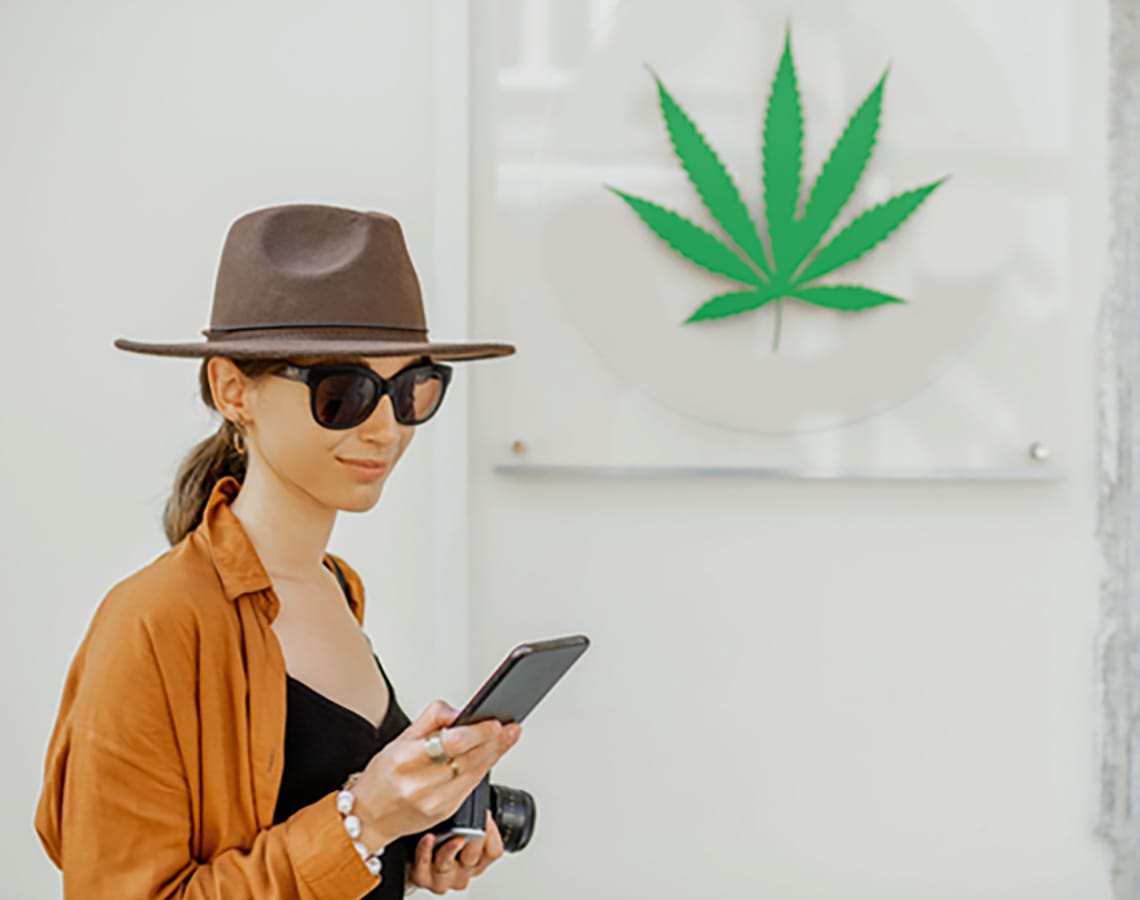0
You have 0 items in your cart
New customers get 20% off with coupon "KOSMIC" Dismiss
Introduction: Post-Traumatic Stress Disorder (PTSD) is a mental health condition that can develop in individuals who have experienced or witnessed a terrifying event. Symptoms can include intrusive memories (flashbacks), nightmares, severe anxiety, hyperarousal, avoidance behaviors, and negative changes in mood and cognition. For many, conventional therapies and medications are not fully effective, leading to significant distress and impaired daily functioning. There is growing interest in alternative and complementary treatments, with cannabis and its active compounds, particularly delta-9-tetrahydrocannabinol (THC) and cannabidiol (CBD), showing promise in managing PTSD symptoms.
Understanding the Endocannabinoid System (ECS) and PTSD: The human body’s endocannabinoid system (ECS) plays a crucial role in regulating stress response, emotional memory processing, and fear extinction. This system involves endocannabinoids (like anandamide and 2-arachidonoylglycerol), cannabinoid receptors (CB1 and CB2), and enzymes. In individuals with PTSD, research indicates that there may be dysregulation or deficiency in the ECS, particularly in relation to CB1 receptor availability and endocannabinoid levels. This suggests that modulating the ECS with cannabis-derived cannabinoids (phytocannabinoids) could help restore balance and alleviate trauma-related symptoms. Cannabinoids are believed to interact with brain regions like the hippocampus and amygdala, which are central to fear and memory processing, and are often dysfunctional in PTSD.
Potential Benefits of Cannabis for Post-Traumatic Stress Disorder:
Reduction of Core PTSD Symptoms:
Nightmares and Sleep Disturbances: One of the most consistently reported benefits of cannabis, particularly THC or synthetic cannabinoids like nabilone, is the reduction or cessation of treatment-resistant nightmares associated with PTSD. This can lead to significant improvements in subjective sleep quality and overall sleep duration, which are often severely disrupted in PTSD patients.
Anxiety and Hyperarousal: Both THC and CBD have demonstrated anxiolytic (anxiety-reducing) properties. Low doses of THC can reduce anxiety and hyperarousal, while CBD is recognized for its calming effects without the psychoactivity. By acting on various receptors, cannabinoids can help modulate the overstimulated fear response seen in PTSD.
Intrusive Memories (Flashbacks): Some research suggests that cannabinoids may help to decrease the frequency and intensity of intrusive memories and flashbacks by influencing fear extinction and memory consolidation processes in the brain. The ECS is involved in “forgetting” unpleasant memories, and cannabinoids may facilitate this process.
Improved Emotional Regulation and Mood:
Anxiety and Depression: PTSD often co-occurs with anxiety and depression. Cannabis, particularly certain strains or formulations, may help alleviate these co-morbid symptoms, contributing to an overall improvement in mood and emotional well-being. CBD, in particular, is being explored for its antidepressant effects.
Emotional Processing: Cannabinoids may positively influence neural activity in brain regions involved in emotional processing, potentially helping individuals with PTSD better regulate their emotional responses to triggers.
Enhanced Quality of Life:
By addressing key symptoms like nightmares, anxiety, and sleep disturbances, cannabis can significantly enhance the overall quality of life for individuals living with PTSD, allowing for improved daily functioning, social engagement, and a greater sense of well-being.
Current Research and Limitations:
Mixed Clinical Evidence: While anecdotal reports and some preliminary studies are promising, the existing high-quality clinical trial evidence supporting cannabis as a definitive, effective treatment for overall PTSD symptoms is still limited and mixed. Some studies show significant symptom reduction, while others find no difference from placebo or even a worsening of symptoms with long-term, chronic use.
Need for Robust Trials: More large-scale, randomized, placebo-controlled clinical trials are urgently needed to fully ascertain the safety, efficacy, optimal dosages, and most beneficial cannabinoid ratios (e.g., THC:CBD) for various PTSD symptoms and patient profiles. An FDA-cleared Phase 2 trial (MJP2) is currently underway, investigating smoked cannabis in veterans with PTSD.
Psychoactive Effects of THC: While THC can offer significant benefits, its psychoactive effects (e.g., euphoria, altered perception, potential for increased anxiety at higher doses) can be a concern for some patients. Individual tolerance and careful titration are essential.
Regulation and Product Consistency: The unregulated market for non-prescription cannabis products can lead to variability in purity and potency, making consistent dosing and reliable therapeutic outcomes challenging.
Potential Adverse Effects: Side effects can include dry mouth, headaches, dizziness, and, in some cases, paradoxical anxiety or worsening of psychiatric symptoms, especially with high THC doses or in individuals with pre-existing mental health vulnerabilities. There are also concerns about the impact of chronic cannabis use on cognitive function, though research is ongoing.
Drug Interactions: Cannabinoids can interact with other medications, which is a consideration for PTSD patients who may be on antidepressants or anxiolytics.
Self-Medication Risk: Many individuals with PTSD self-medicate with cannabis, and while some report relief, this can lead to unsupervised use without professional guidance, potentially masking symptoms or delaying access to evidence-based therapies.
Conclusion: Cannabis, particularly through the actions of THC and CBD, holds considerable promise as a potential therapeutic option for managing several challenging symptoms of Post-Traumatic Stress Disorder. Its ability to alleviate nightmares, reduce anxiety and hyperarousal, and potentially influence emotional memory processing offers significant relief for many individuals. However, despite compelling anecdotal evidence and encouraging preliminary findings, more rigorous and extensive human clinical trials are essential to establish definitive efficacy, optimal treatment protocols, and long-term safety. For now, cannabis may serve as a valuable adjunctive therapy for symptom management in PTSD, but its use should always be carefully considered and integrated into a comprehensive treatment plan under the guidance of a qualified healthcare professional.

Offering a wide variety of goods you’re sure to enjoy.

Offering a wide variety of goods you’re sure to enjoy.

Offering a wide variety of goods you’re sure to enjoy.

Offering a wide variety of goods you’re sure to enjoy.
We can help you to elevate your next event.
Book Now
We are devoted to cultivating high-quality, sun-grown, sustainable flowers in the controlled environment of a greenhouse, hydrated by our own geothermal well.
